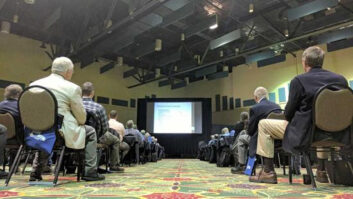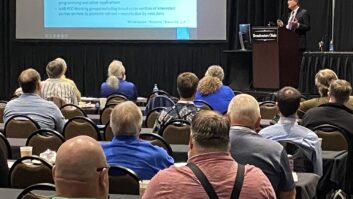It’s a case that ropes in issues of timeliness, candor and questions of who exactly is fit to hold a broadcast license. In the end, the issue of honesty — and the fact that it is a foundational requirement for holding an FCC license — resulted in the revoking of three California station construction permits and licenses.
The Federal Communications Commission ordered that the permits and licenses of three FM stations would be revoked after William L. Zawila and two other groups were accused of disingenuous stonewalling and various misrepresentations in their dealings with the FCC. The others in the case include the estate of Linda Ware and the estate of H.L. Charles, although the FCC said Zawila represents all stations — which include KNGS(FM), KZPE(FM) and KZPO(FM).
The case came to a head largely due to Zawila’s conduct, the commission said.
[Read: Out-of-Date Online Files Being Investigated by FCC]
Way back in 2003, the commission requested this case be reviewed by Judge Richard L. Sippel, a chief administrative law judge with the FCC, after allegations were made regarding illegal transfer of facility control, the violation of several commission operating rules and an allegation that Zawila had made several disingenuous misrepresentations to the FCC.
After some internal issues were resolved, including a distress sale of some facilities, the hearing proceeding was reactivated by Judge Sippel — but not until more than 10 years later.
When the case moved ahead in 2014, it was alleged that Zawila and others had failed to provide substantive responses to several document requests and questions posed by the FCC Enforcement Bureau. Although the judge required Zawila to file a status report during the review, none was submitted. There were also concerns about Zawila submitting incomplete responses to questions and several back and forth discussions on attending a status conference. Because Zawila failed to adequately provide complete substantive responses to the Enforcement Bureau’s interrogatories and to attend a status conference in person, the judge held Zawila in default.
Zawila filed an appeal saying that among other things, the FCC misapplied its own good character policy and was imposing a huge burden by requesting information from so many years ago. Nonetheless, the judge concluded that Zawila had violated numerous provisions of the Communications Act and the FCC Rules, and as a result, did not possess the basic qualifications to remain a permittee and licensee.
In December 2019, the FCC affirmed the judge’s findings and revoked the related permits and licenses.
In the end, the issue of truthfulness was a huge pivoting factor in the case.
“Long ago the Federal Communications Commission established that the ‘trait of truthfulness’ is a necessary element of the character required to operate a broadcast station in the public interest,” said FCC Commissioner Jessica Rosenworcel in a statement following the order. “[In this case], we uphold an earlier finding that a licensee’s misrepresentation, lack of candor and false statements were used to mislead the FCC and defraud the public interest.
“In doing so, we affirm the decision to revoke the licenses and construction permits of a licensee that made a series of false statements to the agency,” she said. “I support this decision as well as the time-honored principles that inform our review.”
On the same day, the commission also dismissed a Petition for Reconsideration by two other parties to this proceeding: Avenal Educational Services and Central Valley Educational Services. The FCC said this request was not properly served nor were the new arguments in the petition raised properly.












